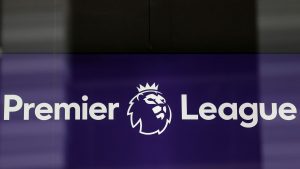
How Ghana lost over GH¢2bn swapping gold for fuel
Since its rollout in January 2023, the Bank of Ghana has disclosed that it incurred losses of GH¢317 million in 2023 and GH¢1.82 billion in 2024 under the Gold for Oil (G4O) programme.
That brings total losses to GH¢2.137 billion over two years.
The central bank injected GH¢4.69 billion into the programme, effectively losing 45% of the capital it deployed in an effort to stabilise fuel prices and support the cedi.
Bank of Ghana
On March 13, 2025, the Bank officially ended the Gold for Oil initiative, citing the heavy financial losses sustained as the primary reason for shutting it down.
Gold for Oil (G4O) was introduced in December 2022 in response to surging fuel prices, with diesel retailing as high as GH¢23 per litre and petrol around GH¢17 at GOIL stations in November 2022.
A sharp cedi depreciation and the rapid depletion of foreign reserves forced the government and the Bank of Ghana to try an alternative strategy: use gold, not dollars, to purchase petroleum products from the international market.
The logic behind the programme was straightforward. Ghana needed a workaround to its dollar shortage that wouldn’t further drain the Bank of Ghana’s reserves or worsen currency depreciation.
The goal was to ease pressure on the cedi by preserving scarce foreign exchange reserves.
Ghana spends about $400 million each month importing fuel, making it a major driver of dollar demand.
Reducing that pressure, even partially, was central to the programme’s logic.
The Bank had already launched a domestic gold purchase programme in June 2021, partnering with the then Precious Minerals Marketing Company (PMMC), now rebranded as GoldBOD, to buy gold dore from local miners in cedis and refine it abroad for Ghana’s official reserves.
The aim at the time was to double Ghana’s gold reserves within five years, then standing at 8.74 tonnes.
That gold stockpile now exceeds 32 tonnes, nearly quadrupling in under four years, according to central bank data.
The domestic gold purchase programme was later expanded to include the Gold for Oil framework
The Bank, via PMMC, bought dore in cedis from miners, handed it to a “gold broker”, and had it sold internationally.
The broker sold the gold for U.S. dollars and deposited the proceeds directly into the Bank’s offshore (nostro) accounts. These funds were used to purchase petroleum products.
The fuel was delivered to Ghana, but the dollars used to buy it remained overseas. As a result, the local economy saw no direct injection of foreign currency.
Notably, the entire arrangement was never subjected to parliamentary oversight. The ruling government argued at the time that the Gold for Oil programme was not an executive policy but a central bank initiative, and therefore did not require parliamentary approval.
The criteria for selecting these gold brokers, the fees paid, and the number of intermediaries involved have not been publicly disclosed.
The cedi did stabilise in the months after G4O’s launch, and fuel prices fell.
While it’s hard to isolate the programme’s direct impact from that of the IMF deal signed in May 2023, the reduced dollar demand from oil importers likely contributed to easing exchange rate pressure.
By November 2023 (nine months in) then-Finance Minister Ken Ofori-Atta told Parliament during the 2024 budget presentation that G4O accounted for around 30% of petroleum imports.
No major updates followed until the release of the Bank’s 2024 financial report.
The Bank attributes most of the GH¢2.1 billion loss to foreign exchange losses.
But key details remain missing: the volume of gold acquired, the fuel supplied, the commissions paid, the intermediaries involved, and the broader impact of the programme.
With over GH₵2.1 billion in reported losses and little transparency about how it was run, Gold for Oil has ended as a costly intervention.
Read also: Explainer: Why one dollar can’t be one cedi
It may have brought temporary foreign exchange relief and cheaper fuel, but it ultimately left a deep hole in the Bank of Ghana’s books.
DISCLAIMER: The Views, Comments, Opinions, Contributions and Statements made by Readers and Contributors on this platform do not necessarily represent the views or policy of Multimedia Group Limited.
DISCLAIMER: The Views, Comments, Opinions, Contributions and Statements made by Readers and Contributors on this platform do not necessarily represent the views or policy of Multimedia Group Limited.











